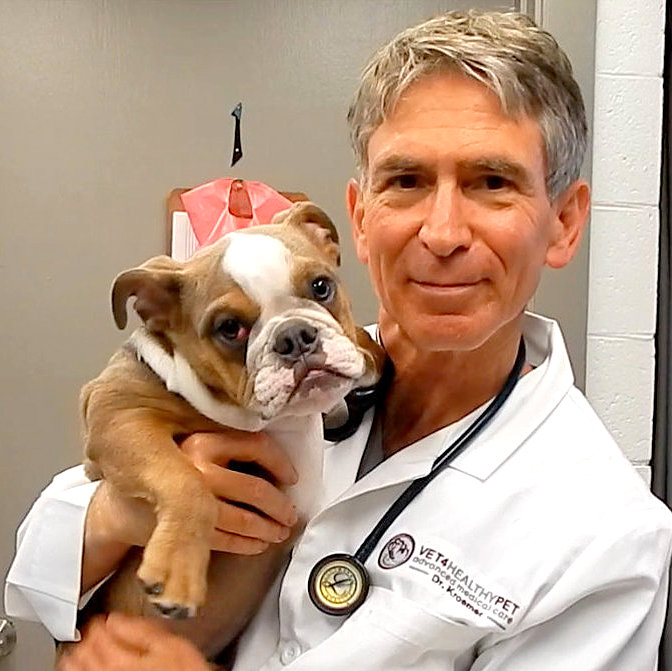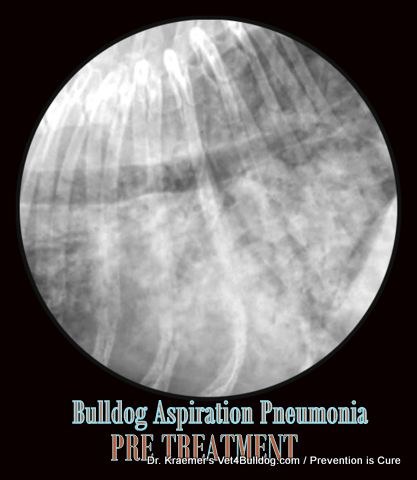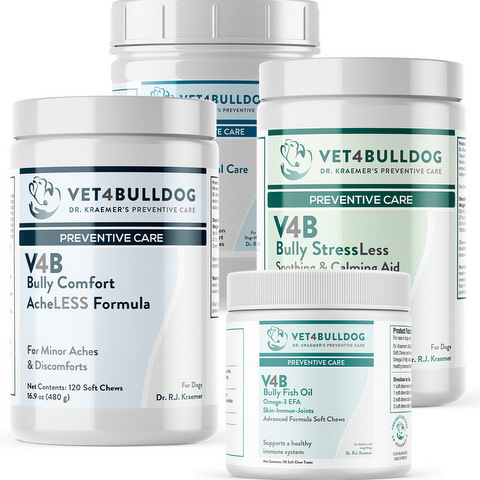Prescription medications, including antibiotics, steroids, NSAIDs, and proton-pumping inhibitors, are valuable in veterinary medicine when used appropriately.
However, overprescription is a growing concern in both human and veterinary healthcare.
Many medications are prescribed unnecessarily or without proper diagnostics, sometimes causing more harm than good.
3 Most Common Reasons For Veterinary Overprescription:
The overprescription of antibiotics and other medications in veterinary medicine is influenced by multiple factors involving veterinarians, pet owners, and practice owners.
Each party plays a role in driving excessive prescriptions, often unintentionally.
#1➡️ VETERINARIANS
- “Just in Case”: A “shotgun empirical approach” (carpet booming) to treatment instead of targeted. Multiple medications are given without clear indications to cover all possible causes.
- “Prophylaxis Treatment”: Veterinarians, shelters, and breeders, at times, prescribe or administer medication even when not needed as a “prevention.”
- Peer Pressure: Some veterinarians may fear professional scrutiny if they don’t prescribe something for a patient.
- Inexperience: Insecure and inexperienced new graduates may feel compelled to prescribe medication unnecessarily as a safeguard to compensate for their lack of confidence.
#2➡️ PET OWNERS
- Pet Owner Expectations: Many pet owners expect a prescription when they visit a vet. Some may feel dissatisfied if they leave without medication, leading veterinarians to prescribe unnecessary drugs.
- Legal Action: Some veterinarians may prescribe antibiotics preemptively to minimize the risk of potential legal claims from clients.
- Quick Fix: Some owners demand immediate, low-cost treatment over more costly diagnosis and time-consuming treatment plans, like wound care or lifestyle changes, and believe antibiotics and drugs are a universal solution.
#3➡️ HOSPITAL OWNERS
- Financial Incentives: Some veterinary hospitals reward high-producing veterinarians or pressure them for a lack of production. Some corporate-owned or high-volume clinics set financial targets, pressuring veterinarians to increase prescriptions
- “We Care”: Hospitals may pressure or incentivize employees to overprescribe to satisfy owners and maintain a reputation for “thorough” care.
Will My Bulldog Benefit From Prescription Medication?
Case Study Bulldog Gastroentritis:
BULLDOG and FR. BULLDOG GASTROENTERITIS
Imagine your bulldog develops acute diarrhea after undergoing anesthesia, staying at a boarding facility, or eating some table scraps. Your bully is otherwise active, eating, and drinking. Should antibiotics or anti-diarrheal medications be prescribed?
Each case should be assessed individually, but ask yourself:
Would you take antibiotics, antidiarrheals, or anti-vomiting medications if you had mild stomach upset?
🩺 The body has natural defense mechanisms such as vomiting and diarrhea to help expel toxins and foreign material, so why suppress them with medication?
🩺 In many cases, supportive care, such as
- rest
- hydration
- a bland ingredient diet
- electrolytes
- supplements
—are more beneficial than unnecessary drug intervention.
Additionally, antibiotics are only effective against bacterial infections. If the issue is
- viral
- parasitic
- allergic
- or food-related,
-The prescribed antibacterial medication will be ineffective and potentially harmful.
Last, even if the cause is bacterial, do you know which bacteria are involved and whether the prescribed antibiotic will be effective
Case Study: Bulldog Common “Flu”
BULLDOG AND FR. BULLDOG COMMON COLD AND OVERPRESCRIPTION
Question: If you experience the common flu, coughing, and sneezing, would you immediately take antibiotics, fever reducers, cough suppressants, and antihistamines?
- Answer 1: Coughing and sneezing help clear foreign material, and a mild fever is a natural antibacterial defense mechanism.
- Answer 2: Prescribing antibiotics will not help bulldogs’ colds caused by a virus or allergy. Antibiotics can only help bacterial infections!
- Answer 3: What can often help your bulldog’s flu is
-
- rest
- hydration
- Quality diet
- supportive supplements
The Hidden Dangers of Prescription Medicines
All prescription medications carry potential risks.
Before administering any drug to your bulldog, consider the side effects. For example:
#1. What Are The Common Harms of Steroids?
Steroids: Steroids may cause
- gut dysbiosis and leaky gut
- gastric ulcers
- Liver problems (steroid hepatopathy)
- orthopedic issues and muscle wasting
- iatrogenic Cushing’s disease
- Immune suppression thus poses a high risk of infection
- Higher risk of pancreatitis and diabetes
#2. What Are The Common Harms of NSAIDs?
NSAIDs (like the common aspirin) can lead to
- gastric ulcers
- bleeding problems
- kidney disease
- Liver damage.
#3. What Are The Common Harms of Overprescribed Antibiotics
- Gut Dysbiosis: Unnecessary antibiotic use can disrupt the gut microbiome, leading to dysbiosis and leaky gut.
- Antibiotic Resistance: Misuse and overuse of antibiotics contribute to antibiotic resistance and the emergence of superbugs.
- Gastrointestinal Upset: Nausea, vomiting, diarrhea.
- Allergic Reactions: itching, swelling, hives, or even anaphylaxis
- Toxicity: hearing loss, liver toxicity, kindy (e.g., aminoglycosides)
- Neurological: Some antibiotics, such as Flagyl and Ivermectin, can cause tremors, seizures, or ataxia
- Joint or Cartilage Damage: Fluoroquinolones (e.g., enrofloxacin) can cause cartilage defects, particularly in growing puppies.
Questions to Ask Your Vet When Prescribing Medication
- Is the prescription medication necessary?
- Can we monitor and treat conservatively for a few days to see if symptoms resolve?
- Should we perform diagnostic tests like cytology or cultures before prescribing antibiotics?
- What are the potential side effects of this medication?
If necessary, follow the prescription precisely and attend all follow-up appointments.
Common Misuse of Prescription Medication in Bulldogs and French Bulldogs
Below is a short list of some of the most common issues of prescription medication in bulldogs
#1. Misuse of Systemic Antibiotics for Otitis Externa:
Outer bulldog and Fr. bulldog ear infections should be treated with topical therapeutics, not systemic antibiotics.
⚠️Systemic antibiotics for otitis externa are usually ineffective and potentially cause harm.
🩺 Instead, use topical bully therapeutics and, if needed, topical prescriptions are best for otitis externa
#2. Misuse of Steroids to Treat Bulldog Skin Problems:
Many bulldogs have underlying Demodex mites due to immune dysfunction.
⚠️ Steroids suppress the immune system and can worsen the skin mite problem.
⚠️ Steroid-immune immunosuppression can also lead to infections, such as bacteria and yeast
#3. Misuse of Ophthalmic Steroids for Bulldog Eye Problems:
Steroid eye drops should never be used without ruling out corneal ulcers (corneal stain), as they can worsen the condition.
#4. Misuses of Antibiotics for Bulldog Superficial Dermatitis:
Many bulldog skin infections can be managed with nonprescription bully-medicated topical therapeutics rather than systemic antibiotics.
Bully antiseptic topical therapeutics include
#5. Misuse of Sulfa Drug for Bulldog Dry Eye (KCS):
This occurs due to their potentially toxic effect on the lacrimal glands, leading to decreased tear production. KCS is common to bulldogs.
#6. Misuse of Opioids for Bulldog Pain Control
Some opioids commonly used for pain relief during surgery can induce vomiting. Bulldogs and French Bulldogs should be avoided due to the high risk of aspiration pneumonia.
What Can You Do To Avoid Prescriptions?
Medications have their place, but the foundation of a healthy bulldog includes:
- A Balanced, High-Quality Diet
- Regular Exercise: walks, playtime
- Maintaining a Lean Body Weight
- Outdoor Exposure: sunlight and fresh air; use a carrier or stroller for bulldogs with mobility issues
- Mental Stimulation: interactive toys, problem-solving games
- Low Stress: a calm home environment
- Alternative Therapies (stem cell therapy, pulsed electromagnetic therapy, PRP, laser therapy, acupuncture, etc.)
- Supportive Bully Therapeutic Supplements
Bulldog Prescription Medication Risk-Reward Conclusion:
- ➡️ Before giving your bulldog prescription medication, weigh the benefits against potential risks.
- ➡️ Overprescription can lead to unnecessary side effects and long-term health consequences.
- ➡️ Whenever possible, seek a proper diagnosis and consider conservative treatment before taking medication.
- ➡️ Be proactive and seek prevention over prescription; seek non-prescription, harmless alternative therapeutics
By taking a thoughtful approach to veterinary care, you can help ensure your bulldog lives a long, healthy life.
~Trusted by Vets ~ Recommended by Owners ~ Loved by Bulldogs
The information provided on this platform is for general informational purposes only. It is not intended as a substitute for professional medical advice, diagnosis, or treatment. Always seek the advice of your veterinarian regarding any medical condition. It's important to always consider professional medical advice promptly and not to delay seeking it based on information you've read on this platform. Any reliance on the information provided here is entirely at your discretion.
























